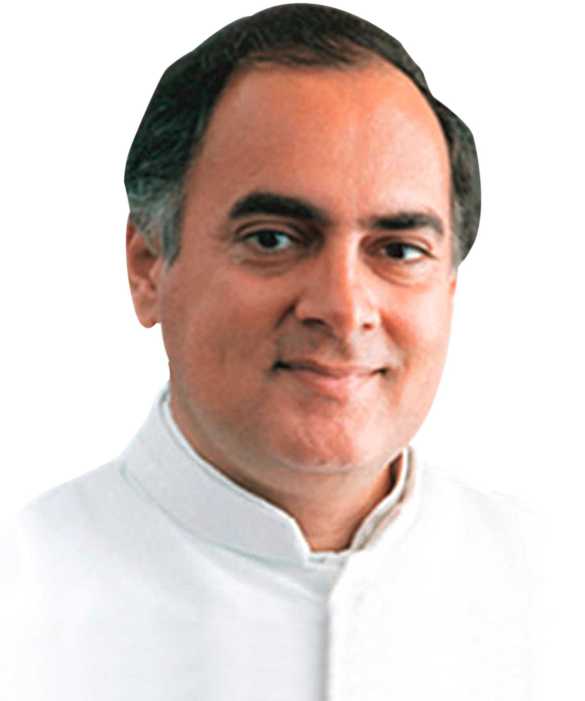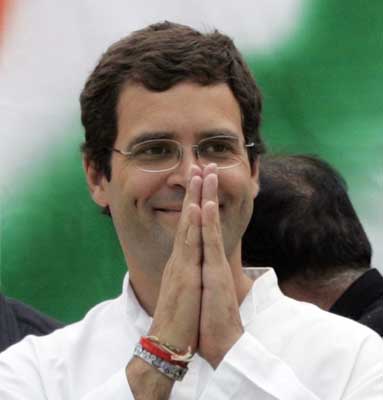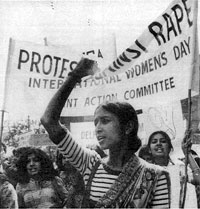Rajeev Gandhi A visionary leader…..
• Rajiv Gandhi during his Prime Minister ship brings a total change in the Indian communication system and his revolutionary steps changed the Indian communication and Information Technology totally. Prior to Rajiv Gandhi’s era neither the Indian people nor the Indian Government was aware or accustomed with the concept called information technology. It is pertinent to mention that Rajiv Gandhi perhaps would not be able to take the steps without the assistance of Dr. Shyam Pitroda who was originally from Orissa.
• That when computer was first introduced in India I was a student of school and to me it was like a typewriter placed before a television set. That when Rajiv Gandhi’s mother Smt Indira Gandhi was assassinated in 1984 at that time only Indian National Television’s (National Doordarshan) broadcasting. All India Radios transmission and local news papers information was our only source of knowledge.
• I still remember that in our Indian Television at that time I saw most probably a small Japanese T.V. unit is taking out and or opening a small umbrella like thing from a suitcase and was doing something.
• I latter under stood from the commentary of the Indian T.V. anchor that those person was showing live telecast of the cremation ceremonies to the Japanese spectators. The incident really astonished me a lot as at that point of time we the Indian people could not imagine such thing.
• In early 80’s one of my relative I remembered went for a foreign tour mainly Europe and I went with my father till Dumdum Airport now known as Netaji Subhas Chandra Bose International Airport; they returned to India after one and a half months and I still remember my elder cousin sister gifted me one sketch pen set bought from UK consisting of 3r colors shade.
• I was very much interested to know from my cousin about Europe and its people but she could give me a little information as she was not interested over the matter she only told me there television is broadcasted round the clock and there is more than 20 channel’s I was spell bound at that time we had only one channel and that too telecasted for a limited period in the evening.
• The satellite channel, cable channel the word was unknown to us. When Rajiv Gandhi first introduced computer in India few Left Political Parties through out the country launched demonstrations and propagated that computer is a super robot like thing and a single computer will finish the job of at least 100 labors as a result of which there will be acute job loss for the people and out of this fear the Left provincial government of the state of West Bengal resistedentry of computer in the state for at least 10 years until there wrong concept broke; and now the same Government is giving utmost importance to the Information and Technology sector and is also financing indigenous computer manufacturing units.
• Today information is a mouse click away for me and I feel sorry for my parents who died in 1996 before I purchase a computer first a PC then a Laptop. I am lawyer and I started my profession depending on the old legal journals of my father’s law library but thereafter in 2005 I purchased my first PC and became accustomed with it I was using windows 98 and gradually I became dependable or better to say addicted to computer in all aspect, instead of raising dust from the old books I am very much comfortable with my laptop as in a click I can find out the required citations.
• Recently for filing a case I went to New Delhi the capital of my country and in a small excretion with my law clerk; mainly for his interest I accompanied him to Indira Gandhi memorial; the house which was once upon a time Mrs. Gandhi’s residence bungalow as Prime minister and also her office at the adjacent bungalow and the place where in 1984 she was assassinated. At present Govt of India had converted two bungalows to a museum in memory of Smt Gandhi and inside that memorial there is a pavilion in memory of her elder son Rajiv Gandhi who was also assassinated at South India few years latter.
• I like that place as it is a historic spot for modern India’s history undoubtedly the house was actually the seat of power of India and its foreign policy. Each time I visited the house and stand in front of Late Rajiv Gandhi’s particular display I find his laptop and also a black and white photograph inside an airplane with that laptop. I became very nostalgic as the owner of the laptop is no more there is no one to charge the batteries or to switch on the system or to shut it down, no one is there to operate the machine it had became silent for ever like its master who once opened the gateway of IT sector of India by introducing computer in our country. Mouse of Rajiv Gandhi’s computer will never be clicked by any one, but it opened a scope for billion and billion clicks of several computers of my countrymen. It is my tribute and homage to the departed soul of a real gentleman of Indian politics had ever seen.



